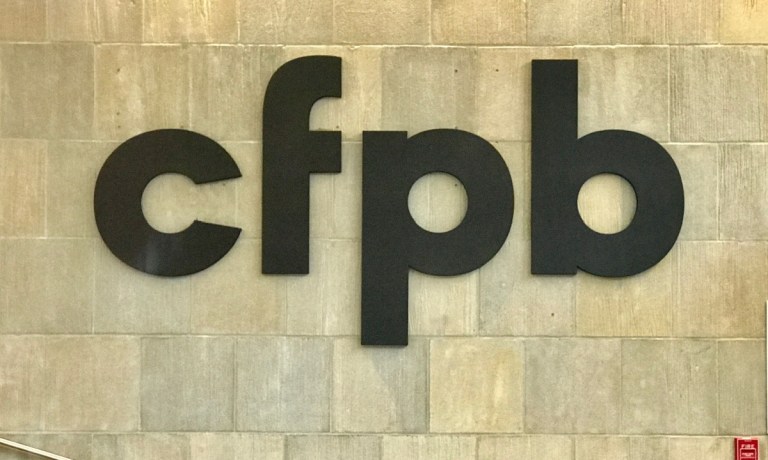CFPB Ends Enforcement of Registry of Consumer Law-Breaking Nonbank Financial Companies

The Consumer Financial Protection Bureau (CFPB) said Friday (April 11) that it will not prioritize enforcement of a regulation requiring a registry of nonbank financial companies that have broken consumer laws and are subject to federal, state or local government or court orders.
“The Bureau will instead continue to focus its enforcement and supervision activities on pressing threats to consumers,” the CFPB said in a Friday press release. “The Bureau is further considering issuing a notice of proposed rulemaking to rescind the regulation or narrow its scope.”
The regulation, “Registry of Nonbank Covered Persons Subject to Certain Agency and Court Orders,” was announced by the CFPB in June.
The Bureau said at the time in a press release that the regulation required covered nonbank companies to register with the CFPB when they have been caught violating consumer law and to provide an attestation from a senior executive that the company follows any relevant orders.
It added that the registry is meant to help law enforcement across the United States identify and stop repeat offenders.
“Too many American families have been harmed by corporate repeat offenders in a rinse-and-repeat cycle of illegality, where bad actors see fines and penalties as the cost of doing business,” then-CFPB Director Rohit Chopra said at the time. “Throughout our economy, we have seen fraudsters and scam artists get caught in one part of the country and restart their scheme in a new place hoping to not get caught again.”
Regulators did not offer up cost-benefit analyses as to how the expanded disclosures would impact and improve earlier procedures — and what the impact might be, ultimately, to firms and their end customers — PYMNTS reported at the time.
Commenting on the registry when it was proposed, the U.S. Chamber of Commerce said in a March 2023 letter to the CFPB that “in publicizing information that is already public, the Proposed Rule would not help consumers. In contrast, the Proposed Rule would impose very real costs upon consumer financial services companies that are subject to its requirements, including by driving up compliance costs through an unlawful executive attestation requirement … specifically, the contemplated public disclosures will lack critical context, particularly when a final order does not disclose potential weaknesses in the agency’s case, the reasons the company chose to enter a settlement agreement and whether the company admitted fault.”
The CFPB said in its Friday press release that it aims to give “regulatory relief” from the registration requirements for small loan providers.



